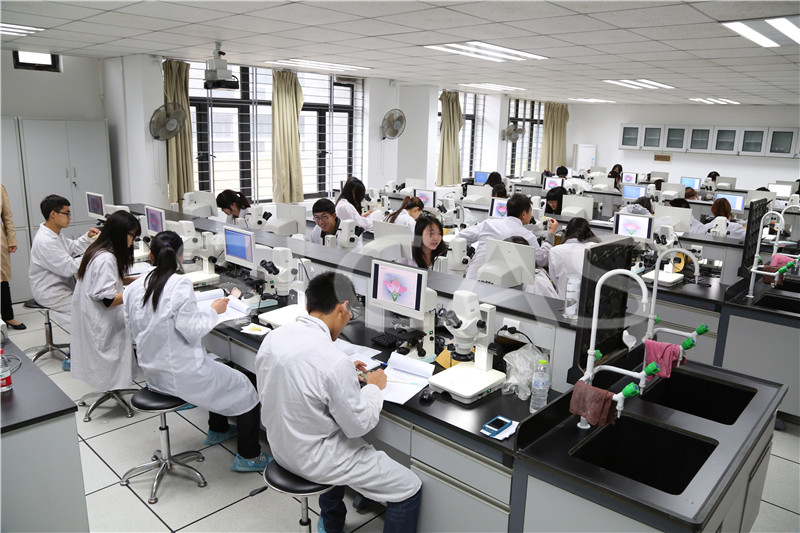It typically takes 4 years for a Bachelor’s degree in Pharmacy in China, with additional years for advanced degrees.
Table of Contents
The most popular pharmacy school in China
| Pharmacy School | Location | Time Required (Years) | Notes |
|---|---|---|---|
| Peking University | Beijing | 4 (Bachelor’s) | Time varies for Master’s and PhD programs |
| Fudan University | Shanghai | 4 (Bachelor’s) | Master’s and PhD programs also available |
| Sichuan University | Chengdu | 4-5 (Bachelor’s) | Extensive research opportunities |
| Shenyang Pharmaceutical University | Shenyang | 4 (Bachelor’s) | Specialized in pharmaceutical sciences |
| Zhejiang University | Hangzhou | 4 (Bachelor’s) | Known for innovative research |
| Sun Yat-sen University | Guangzhou | 4 (Bachelor’s) | Master’s and PhD programs available |
| China Pharmaceutical University | Nanjing | 4 (Bachelor’s), 2-3 (Master’s), 3-5 (PhD) | Specialized pharmacy university |
| Tsinghua University | Beijing | 4 (Bachelor’s) | Renowned for scientific research |
Pre-Pharmacy Requirements
High School Subjects Needed
The selection of high school subjects is essential for laying a strong foundation for your pharmacy education. Key subjects include:
- Mathematics: A strong grasp of calculus and statistics
- Sciences: Courses in Biology, Chemistry, and Physics
- Language: Proficiency in English and Mandarin, as both are often used in academic settings
For an in-depth understanding of these subjects, you might want to visit their respective Wikipedia pages.
Entrance Exams
- National College Entrance Examination (Gaokao): The Gaokao is a significant exam that primarily determines college admissions.
- Pharmacy Aptitude Tests: Certain colleges might need extra tests that focus specifically on what you know and can do related to pharmacy.
Selection Criteria
- Academic Performance: Your grades in relevant high school subjects
- Extracurricular Activities: Involvement in science clubs, internships, or other relevant experiences
- Letters of Recommendation: Usually from science teachers or professionals in the field
- Interview Performance: Some schools conduct interviews to assess your commitment and aptitude for the pharmacy profession
Bachelor’s Degree in Pharmacy
A Bachelor’s Degree in Pharmacy is usually the starting point for a career in the pharmacy sector in China. Below are some of the vital components of the Bachelor’s Degree in Pharmacy.
Duration of Bachelor’s Program
- 4 Years: This includes classroom learning, lab sessions, and a few short-term internships.
For those interested in understanding educational timelines, a visit to the Wikipedia page on Bachelor’s degrees can provide more insight.
Curriculum Overview
such as:
- Basic Sciences: Courses in Organic Chemistry, Physiology, and Microbiology.
- Pharmacology: Focuses on the effects of drugs, their mechanism, and proper usage.
- Pharmacy Law and Ethics: Guidelines and regulations governing the pharmaceutical field.
- Clinical Pharmacy: Practical learning in a healthcare setting to understand drug utilization and patient care.
Practical Training
- Lab Sessions: Regular lab sessions to practice pharmaceutical techniques.
- Clinical Rotations: As you progress in your studies, you may have the opportunity to work in specific areas like cancer treatment or heart health during your practical training.
Master’s Degree in Pharmacy
Pursuing a Master’s Degree in Pharmacy opens doors to specialized areas within the field and provides opportunities for research and advanced learning. Let’s delve into what this advanced degree entails.
Timeframe for Master’s Program
- 2 to 3 Years: The time it takes can be different depending on the school and the kind of research they’re doing.
Specializations
A Master’s Degree in Pharmacy offers a range of specializations to choose from:
- Clinical Pharmacy: Focuses on patient care and medication management.
- Pharmaceutical Chemistry: Involves the study of drug design and synthesis.
- Pharmacognosy: Centers on the study of medicines derived from plants and other natural sources.
- Pharmacoeconomics: Addresses the economic aspects of drug policy and healthcare.
Research Opportunities
Research forms a critical part of the Master’s program and provides a platform for innovation:
- Collaborative Research: Lots of programs work together with drug companies or health organizations for practical research in the real world.
- Academic Conferences: Students often get the opportunity to present their findings at national or international conferences.
Doctorate in Pharmacy
Time Commitment for PhD
The doctoral program usually requires a considerable investment of time:
- 3 to 5 Years: The length of a PhD program in pharmacy can vary widely, depending on the research project and the institution.
Dissertation Requirements
The dissertation or thesis is a cornerstone of a PhD in Pharmacy:
- Proposal Defense: Students must present and defend a research proposal to a committee of experts.
- Research Work: Extensive research is conducted, often involving both laboratory work and data analysis.
- Final Defense: The completed dissertation must be defended before an academic panel for evaluation.
Post-doctoral Opportunities
- Academia: Many opt for faculty positions in universities where they can continue their research.
- Industry Research: High-level research roles in pharmaceutical companies are common.
- Entrepreneurship: Starting your own venture or collaborating on pharmaceutical startups.

The most popular pharmacy school in China
Licensing and Certification
National Licensing Exam
- Exam Components: The test usually includes questions where you choose from different options, brief written responses, and hands-on evaluations that cover all aspects of pharmacy.
- Eligibility: Generally, you must have a Bachelor’s Degree in Pharmacy to be eligible to sit for the exam.
- Frequency: The exam is usually conducted annually or semi-annually, depending on the jurisdiction.
Additional Qualifications
- Continuing Education: Ongoing education is often required to renew your license, keeping you updated on the latest in pharmaceutical sciences.
- Advanced Degrees: Obtaining a Master’s or Doctoral degree can also be a valuable qualification, particularly for jobs in teaching or research.
Comparison with Other Countries
Here’s how China compares with other nations, particularly the United States.
Time to Complete Pharmacy Education in the U.S.
- Pre-Pharmacy: 2 to 3 years of undergraduate studies with a focus on sciences.
- Doctor of Pharmacy (Pharm.D.): A 4-year program, making it a total of 6 to 7 years of education.
Differences in Curriculum
While the core elements remain similar, there are notable differences in the curriculum between China and other countries like the U.S.:
- Clinical Training: U.S. programs often have more extensive clinical training, including a full year of clinical rotations.
- Research Focus: Chinese programs might have a stronger emphasis on basic pharmaceutical sciences and traditional medicine.
- Regulatory Studies: The U.S. curriculum includes detailed courses on FDA regulations, while Chinese programs may focus more on local laws and Traditional Chinese Medicine.


